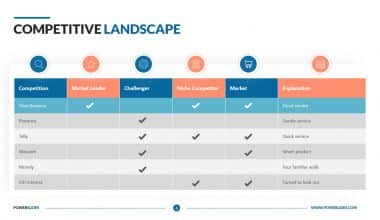There are several tuition reimbursement requirements and benefits that employees gain from using the program. This plan can assist both individuals and employees in paying for their education. . While providing reimbursement to your staff demonstrates your appreciation for their loyalty to your business and willingness to advance their skill sets. Before offering this employee benefit, there are a few factors to take into account regarding tuition reimbursement.
Tuition Reimbursement
With a predetermined amount of funding from the employer, tuition reimbursement plans let employees pursue particular degrees and certificates. Companies gain when they assist their employees in achieving their career objectives. Many companies that use these programs report higher employee retention rates and use them to find new talent.
Employers who offer tuition reimbursement to their staff members reimburse them for the costs associated with enrolling in classes and furthering their education. The goal of tuition reimbursement is to assist staff members in acquiring new abilities and expertise that they can apply to their current roles or that will help them prepare for future employment opportunities. Additionally, this perk may aid in luring and keeping talented workers.
Tuition, books, and other fees associated with the course are typically covered by tuition reimbursement. Some employers might also provide a stipend to help with extra expenses like travel and child care. Employer tuition reimbursement typically requires students to pass the course and finish within a predetermined time limit (for example, within two years) to qualify.
Employees can receive money through tuition reimbursement if they enroll in college while working for your company. Normally, the employer reimburses the employee for their course expenses after the employee completes the program. The company’s policy determines how much the employer will pay.
Jobs With Tuition Reimbursement
#1. Bank teller
Banking transactions for customers are handled by bank tellers. Tellers at banks typically handle customers’ deposits and withdrawals. Additionally, they deal with customer service issues like responding to inquiries about bank accounts and directing clients to different bank departments.
#2. Teacher
In the subject matter that has been assigned to the students, a teacher instructs them. Among the tasks are lesson planning, assigning homework and tests, keeping track of students’ progress, and assigning grades. By serving as mentors, teachers assist students in achieving success.
#3. Certified Nursing Assistant (CNA)
A certified nursing assistant helps patients with activities of daily living such as eating, bathing, and grooming. CNAs also keep an eye on the patient’s vital signs. CNAs who work in intensive care units and surgical units must learn how to use and interpret diagnostic reports from specialized medical equipment. With this specialized education, certified nursing assistants typically earn more money.
#4. Behavioral Therapist
People with mental health disorders are treated by behavioral therapists. A crucial part of treatment is showing patients how to understand their behavior and change their patterns to take on healthier behaviors.
#5. IT Support Specialist
An IT support specialist aids computer users in resolving system-related issues. In addition to helping customers, IT support professionals troubleshoot IT issues, teach staff how to use software programs, deal with problems with internet technology, and maintain security databases.
#6. Family Therapist
A family therapist works with the family to strengthen the bond and promote mental health. Therapists instruct their patients in interpersonal skills like conflict resolution, healthy boundary-setting, and problem-solving.
#7. Physician
Keeping patients physically healthy is a doctor’s responsibility. Among the responsibilities are carrying out yearly examinations and suggesting modifications to health regimens like diet and exercise. Additionally, doctors can identify and treat illnesses. In case it’s necessary, doctors also offer follow-up care.
Government Tuition Reimbursement
The federal government offers a wide range of benefits to its employees. In addition to retirement benefits and health insurance, many federal workers are eligible for financial aid or tuition reimbursement for continuing education and training related to their jobs.
You might be qualified to get your tuition and other related study-related expenses reimbursed if you work full-time for the federal government. In addition to providing up to 100% of the cost of tuition, the Office of Personnel Management may also pay for all necessary course materials to support work-related studies.
The extent of this coverage is contingent upon receiving approval from both your immediate supervisor and your local Civilian Training Director, who must both vouch that the course is directly related to your professional development and job requirements.
Before registering for any courses, you should confirm acceptance and financial aid.
Tuition Reimbursement Benefits for Employees
#1. Keep Up With Emerging Trends and Technology
Employees who receive tuition reimbursement can stay current with changes in their industry. By getting training and education related to their jobs, employees can stay up to date with the most recent trends and advancements in their industry. As a result, keeping up with new technology used in the sector is critical. Keeping up with trends is one of the benefits of tuition reimbursement.
#2. Boost Productivity and Creativity
Employee creativity and innovation can increase with tuition reimbursement. By getting training and education related to their jobs, employees can learn new ways to solve problems and come up with new ideas. Employees benefit greatly from tuition reimbursement by improving their creativity.
#3. Increasing Your Level of Education
Since many employers prefer candidates with degrees, your degree will be valuable throughout your career. As long as their meet up with the requirements for tuition reimbursement, employees greatly benefit by increasing their level of education.
#4. Becoming Qualified for Higher-Level Jobs
A degree may help you be eligible for positions in leadership or with more responsibility. Furthermore, you can acquire new abilities that you can use in your career. You’ll likely pick up skills that you can use throughout your education.
#5. Demonstrating a Willingness to Contribute More to the Company
Finishing a program shows that you want to help your employer more and are willing to do so. This is because education can be a time-consuming endeavor. When employees meet the requirements for tuition reimbursement and complete their studies successfully, the employer benefits more, as they show that they are willing to contribute more.
#6. Financial Savings
People can avoid having to pay for classes, which is a big benefit of tuition reimbursement. As long as the employee meets up with the requirements, they will save more money
Tuition Reimbursement Requirements
#1. Pursuing a Particular Course of Study
Some employers will only pay for tuition if the employee majors in or studies subjects that relate to their industry. If a marketing coordinator, for instance, decided to return to school, their employer would pay for marketing courses but not culinary school. One of the requirements for tuition reimbursement is pursuing a course that relates to the company.
#2. The Cost of the Courses
Employers may only cover the cost of courses that add up to a reasonable total to keep expenses stable. The employee is responsible for covering any additional costs if course costs exceed the cap established by company policy.
#3. Achieving Certain Grades
For an employer to cover tuition, the employee must achieve a certain grade in the course. For some, enrolling in a course requires a grade of C or higher. The employee handbook should contain a list of the different grade point policies that apply to each employer. An employee must have a certain grade as one of the requirements for reimbursement of their tuition.
#4. Set Working Period
You might also need to put in a set amount of time working for your employer after receiving tuition assistance. You might have to repay the money if you leave your employer before the predetermined period, which can be expensive. Before enrolling, make sure you fully understand the reimbursement policy of your employer by speaking with a representative from HR.
How Does Tuition Reimbursement Work?
Tuition reimbursement plans typically require you to pay the upfront costs of your academic pursuits. Following the completion of the course, or after a predetermined amount of time, you may apply for reimbursement up to the amount provided by your employer.
In most cases, up to a predetermined cap, the employer will pay back a portion of the employee’s tuition expenses. For instance, an employer may pay up to $5,000 in annual tuition expenses in reimbursement. Usually, they will only pay for courses that are relevant to the job at hand or that will enhance the student’s abilities for the position. In addition, they might need the manager’s consent before signing up for a course.
Employees typically need to meet a set of requirements set by their employer to qualify for tuition reimbursement. They might have to maintain a particular grade point average or enroll in courses related to their line of work, for instance.
Taxes have an impact on how tuition reimbursement functions. It is taxable income for an employee to receive tuition reimbursement in its entirety. The money that the employer receives for tuition reimbursement or other fees must therefore be subject to taxation. As a result, if an employee gets $5,000 in tuition reimbursement from their employer, they must pay taxes on that $5,000.
However, there are a few exceptions. For instance, if a worker participates in a qualified employer-sponsored plan that includes an educational assistance program, the reimbursements might not be regarded as taxable income. Furthermore, if the reimbursements are received in exchange for instructing classes, they might not be regarded as taxable income.
It is essential to ask the HR department about the precise policies and requirements for tuition reimbursement.
Is Tuition Reimbursement a Good Idea?
There isn’t a straightforward response to this query. Some industry experts believe that offering tuition reimbursement is a great way to draw in and keep talented employees. Others are concerned that the cost of tuition reimbursement programs can be unaffordable and that the programs might not result in improved job performance.
How Does Tuition Reimbursement Work With Student Loans?
Tuition reimbursement has no bearing on the quantity or number of loans you are eligible for. Your ability to take on less student loan debt as a result of your employer covering a larger portion of your tuition expenses.
How Do I Ask For Tuition Reimbursement?
To find out more about the application procedure, consult your employee handbook and benefits package. Usually, your HR department will let you submit an application. You should keep in mind that programs for professional development, educational assistance, and tuition reimbursement are just a few of the names that can be used to refer to the same thing.
Why Do Companies Offer Tuition Reimbursement?
Employers may provide the perk of tuition reimbursement for a variety of reasons. One is that the training an employee receives might improve their performance on the job. In contrast to hiring someone from outside, they might thus be given the chance to advance within the company.
To diversify their employee base, businesses also want to attract talent. They will have a more robust workforce if they provide this benefit because it will encourage more people to work for them.
What Company Pays the Most Tuition Reimbursement?
#1. Amazon
With a yearly maximum, Amazon’s Career Choice program will cover up to 95% of employees’ tuition and fees for those who obtain a degree or certificate. Students must select a degree that relates to a profession that is in demand, like nursing or computer design. Employees become eligible after one year of employment.
#2. AT&T
AT&T includes a tuition reimbursement program worth up to $5,250 per year as part of its benefits package. Employees with either a full- or part-time schedule may apply. To participate, all employees must fulfill certain conditions and receive company approval.
#3. Anthem, Inc.
An insurer of medical care is Anthem, Inc. The annual maximum tuition and textbook reimbursement for employees is $5,000. The award is for $2,500 for part-time workers.
#4. BP
BP makes the offer to cover 90% of the cost of tuition, fees, and textbooks for academic and vocational courses at a recognized institution. The prerequisites for eligibility are numerous. Employees must, for instance, pass a grade-point average test and receive company approval.
#5. Bank of America
Bank of America is a well-known financial powerhouse. This financial services company reimburses employees for educational costs up to $5,250 per year. The benefit includes certificate courses relevant to employment and degree programs.
#6. Best Buy
Employees must be full-time, put in at least 32 hours per week, and have served their six-month probationary period to be qualified for Best Buy’s reimbursement program. For undergraduate courses, Best Buy’s program offers up to $3,500 in reimbursement, and for graduate-level courses, up to $5,250.
How Much Do Most Companies Pay for Tuition Reimbursement?
In many cases, employers set their annual cap at the $5,250 tax deduction threshold. However, employers who are particularly eager to train their staff might be more willing to contribute.
But each organization has a cap on what they pay out, which courses are eligible for reimbursement, etc.
The employee is responsible for paying taxes on any tuition reimbursement over $5,250 per year. If you get a sizable reimbursement, be ready to pay a sizable tax bill at the end of the year.
What Is the Difference Between Tuition Assistance and Tuition Reimbursement?
Similar to tuition assistance programs, tuition reimbursement programs allow employers to support eligible employees who decide to return to the school financially. On the other hand, tuition reimbursement necessitates that professionals pay their tuition upfront, which is the main distinction.
The process by which an employer pays the upfront tuition costs for an employee’s education or allows the school to postpone those costs is known as tuition assistance (TA). While tuition reimbursement (TR) is the procedure an employer uses to reimburse employees for their tuition and other educational program costs
Conclusion
A great way to maximize your education and professional experience is through tuition reimbursement. You can immediately benefit from your education by applying the skills you learn in your courses to your regular work. Your career will advance in a variety of ways if you work for a company that provides this benefit. Your employer’s reimbursement program may hold the financial key to finishing your degree if you can lower the cost of returning to school by using all of the annual limits.
Tuition Reimbursement FAQs
What Is Tuition Reimbursement?
Tuition reimbursement plans let employees pursue particular degrees and certificates. The company reimburses the employee after successfully completing the course.
What Are The Benefits Of Tuition Reimbursement?
- Increased Productivity
- High Employee Retention
- Financial Savings
How Much Do Most Companies Pay for Tuition Reimbursement?
In many cases, employers set their annual cap at the $5,250 tax deduction threshold






